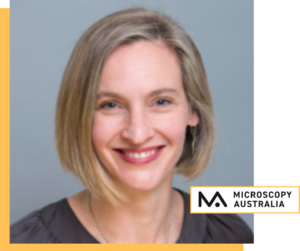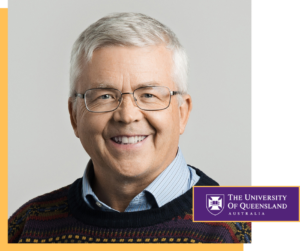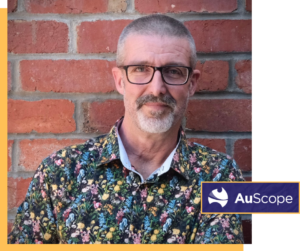Session 13: The skillsets needed today and for the future: Developing the next generation of research infrastructure leaders
Wednesday, 4th December 12.00PM AEST | Plenary session
How do you prepare a skilled workforce to meet the evolving needs of future research infrastructures? This session aims to highlight effective recruitment strategies and career pathways that promote innovation and excellence, whilst ensuring a sustainable and vibrant future for the global research infrastructure ecosystem.
Through a Global Café format, the session will feature speakers presenting various international training initiatives and programs, fostering a shared understanding and potential for collaboration. Attendees will have the opportunity to discuss this with colleagues and gain further insights into how research infrastructures worldwide are cultivating the next generation of leaders.

Moderator
Lisa Yen is the CEO of Microscopy Australia, established in 2007, to enable access to advanced microscopes and experts through the Australian Government’s National Collaborative Research Infrastructure Strategy (NCRIS). She has nearly 20 years of experience in collaborative research activities, focussed on enabling research and innovation, both nationally and internationally. She is currently Co-Chair of Global BioImaging, an international network of cutting-edge bioimaging facilities to share best practice and support career pathways for imaging scientists around the world.

Panellist
Antje Keppler is Director of Euro-BioImaging ERIC Bio-Hub and leads an international team to coordinate the pan-European services for biological imaging. She is Chair of ERIC Forum, where 28 ERICs together represent their common voice towards key stakeholders. Antje also is coordinator of the Global BioImaging network, which promotes open science and access to imaging services in over 62 countries.

Panellist
Dr Graham Wright combines an interdisciplinary PhD from The University of Edinburgh with an MBA from the Warwick Business School and 16 years’ experience leading advanced microscopy core facilities. As the Director of the Research Support Centre within Singapore’s Agency for Science, Technology & Research (A*STAR), Graham is a passionate proponent of core facilities to enable and enhance scientific research, by providing world-class, operationally optimized, expert-run facilities, sustainably. With partners from Singapore’s research ecosystem, Graham founded SingaScope – a Singapore-wide microscopy infrastructure network, part of Global Bioimaging (GBI). Together with Kerry Thompson (Galway), Graham co-chaired the GBI Working Group on Imaging Scientist Career Paths.

Panellist
Emeritus Professor Joe Shapter held academic positions at Flinders University and the University of Queensland. He was the Pro-Vice-Chancellor (Research Infrastructure) at the University of Queensland. He served on the boards of several national infrastructure facilities. He is a member of the National Research Instructure Advisory Group and is also Chair of the National Digital Research Infrastructure Working Group.

Panellist
Tim Rawling is the CEO of AuScope Limited. AuScope is Australia’s provider of research infrastructure to the national geoscience community working on fundamental geoscience questions and grand challenges — climate change, natural resources security and natural hazards. Prior to this role, he was Director of Infrastructure Development for AuScope’s Australian Geophysical Observing System (AGOS). His recent research has involved the development of regional/crustal-scale 3D and 4D geological models as well as new exploration methodologies involving 3D modelling and finite element simulation. Tim’s background is in structural geology and IT, and he has previously worked as a consultant exploration geologist, as the manager of the 3D modelling and simulation programs at GeoScience Victoria (DPI), as the MCA funded lecturer at the University of Melbourne, a commercial programmer and as a researcher at Monash University and the University of Arizona.
We acknowledge the Traditional Owners of the lands and waters throughout Australia, and pay respect to the Elders past, present and emerging. We recognise the importance of connection to culture, land, kinship and community to the health and wellbeing of Aboriginal & Torres Strait Islander families. We acknowledge the cultural practices and traditions still carried out today and being passed down to future generations.


